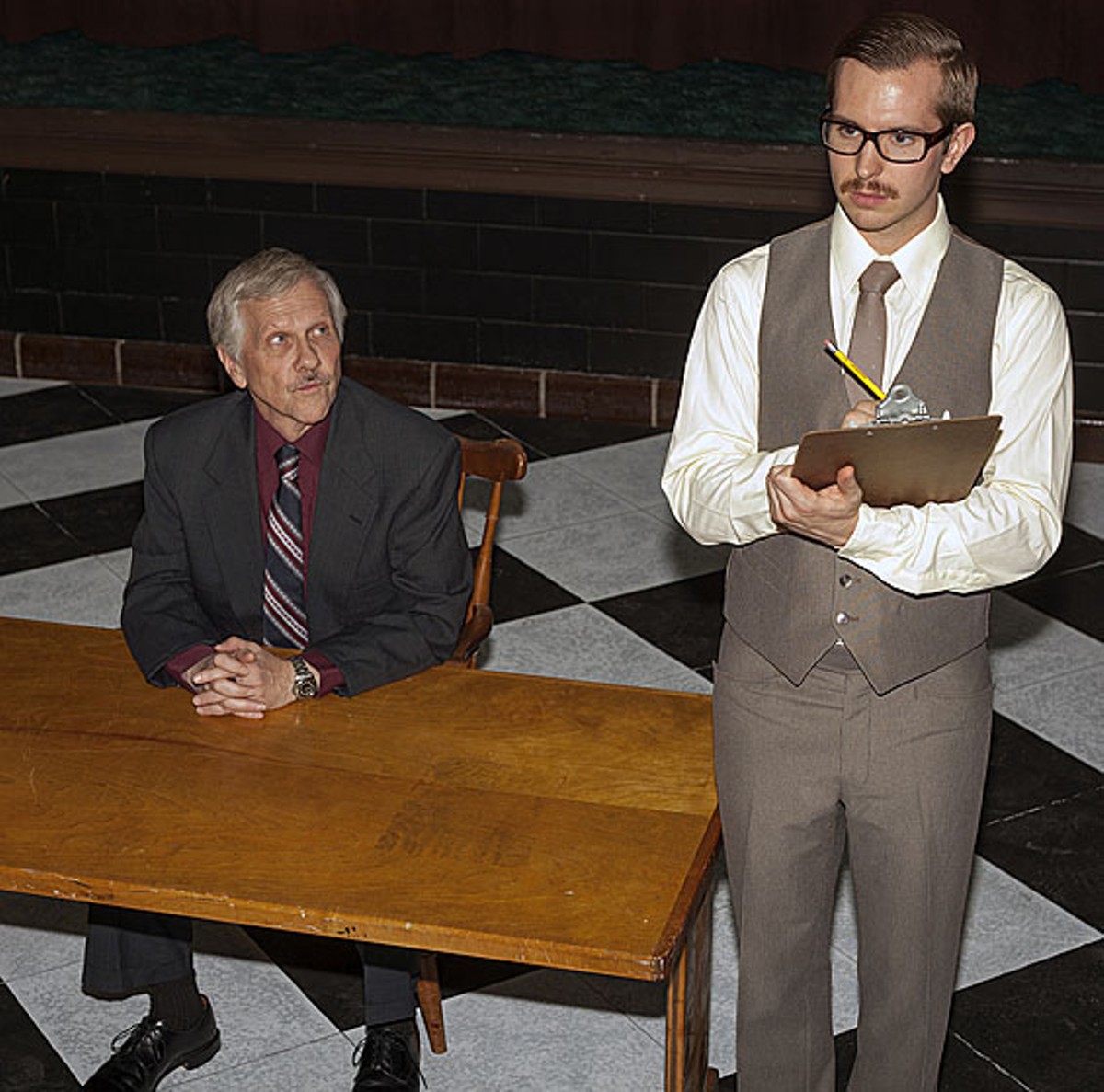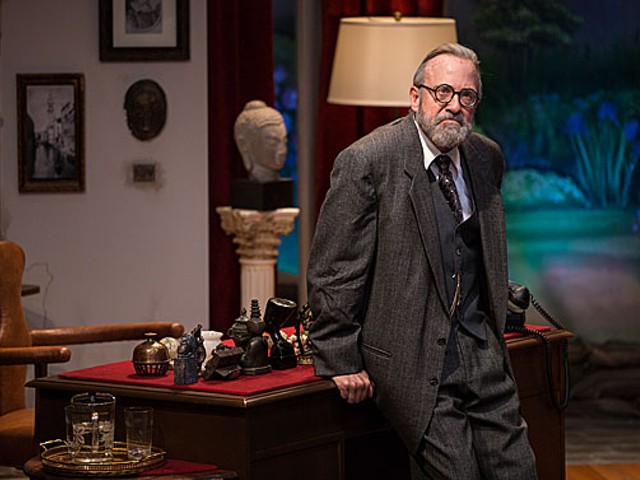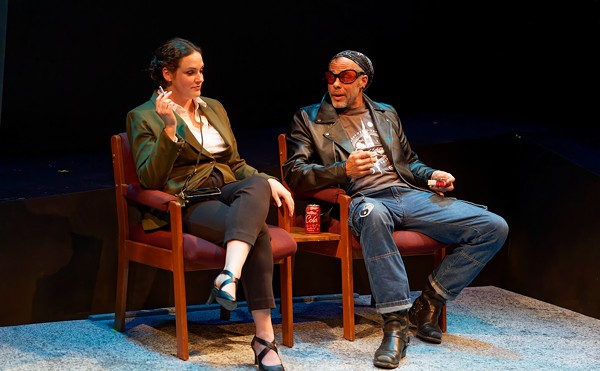Harold Pinter is renowned for his ability to breathe menace into his scripts through pregnant pauses and the tense white space of silence. The Hothouse, by contrast, opens with a lively two-man comedy act, as Roote (Robert Ashton) and his assistant Gibbs (Zach Wachter) discuss the status of certain patients under Roote's care at "the institution." Roote learns that one patient recently died while another has successfully given birth to a boy. Roote can't recall either patient until Gibbs describes each in turn. Only then does Roote claim to have known them all along. "I'm certain you do," Gibbs replies archly.
What exactly is going on at this sanatorium — or is it a convalescent home? Ashton plays Roote with an airy bonhomie in the early going, but it's soon evident that it is more hot air than anything friendly. Roote rambles on about order being his mandate, and his many achievements and his command of staff and institution, but everything around him is in disorder.
His staff consists of the predatory Miss Cutts (Elizabeth Graveman, who shows more carnal hunger in a pointed stare than you'd think possible), the hard-drinking and professionally irritating Lush (Roger Erb) and the earnest and simple Lamb (Pete Winfrey), who dresses in crisp whites and a neat bow tie, and hopes to better himself at every turn. And then there's Gibbs, who is one of them but stands apart from both the staff and Roote. Wachter gives Gibbs a finicky precision — whether crossing his legs or dealing cards, it's always completed with a tidy, efficient flourish. None of them are ever seen with a patient, each pursuing their own agenda of distraction, drinking and/or sex.
Director Suki Peters marshals all this chaos under a stately pace, with Joshua Cook's sound design playing a major part in the proceedings. Scene changes are accompanied by the treacly sounds of '50s pop hits (Doris Day and her ilk), but they're cut short by eerie giggling and the occasional scream. Those screams and maddening giggles grow more frequent as Roote's beloved order becomes more ragged.
The playwright's metaphor here is the corroded state of the English government: The boss is slipping, everybody is fooling around instead of working, and eventually — someday? — the people will tear them down and replace them with someone better. The first act ends with poor Lamb strapped into a chair staring hopefully toward the light while "Ave Maria" swells majestically in the growing darkness; Pinter's laying it on a little thick, eh?
But the second act is so damned engaging you forget about the heavy handedness — and that's Pinter's point. If our leaders are ineffective but charming, we'll let 'em get away with murder. And Roote, in Robert Ashton's hands, is like a beloved crazy uncle. Drunk and staggering around his office on Christmas night, Roote tells Gibbs that he has "the second sight and I can see through walls," but then takes pains to clarify that those are two separate powers. You laugh just enough to forget that he recently threatened two coworkers with a huge bayonet he keeps in his desk.
Then the slaughter that's been burbling around us all night finally happens, and Lamb returns for a chilling, bleak, final bow. Poor little Lamb. Poor little us.
Editor's Note: Riverfront Times has an immediate need for a freelance writer to pen weekly theater reviews for the print and online editions of the RFT and coordinate our performing arts coverage. Interested candidates should e-mail a résumé and clips (subject line: "theater critic") to [email protected].






